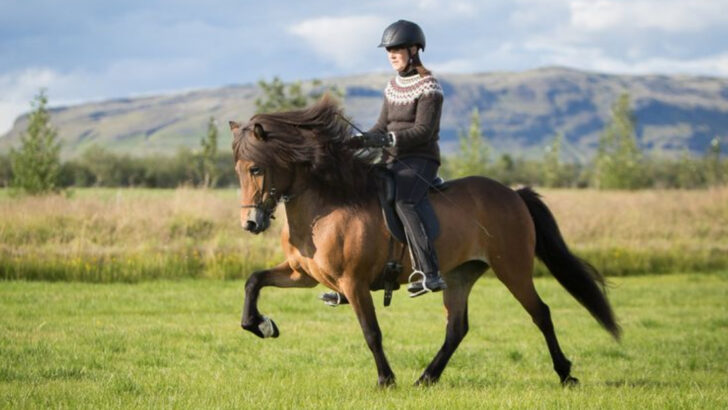Some horses will follow you like a loyal puppy. Others will make you question every life choice that led to saddling up.
Training a horse isn’t just about skill—it’s a full-blown relationship drama, complete with trust issues, big personalities, and the occasional tantrum (on both sides). Pick the right breed, and things click. Pick the wrong one, and you’re in for a rodeo—literally.
Whether you’re a total beginner or a seasoned wrangler, knowing which horses are chill and which ones will run circles around your patience is a game changer.
Let’s break down the breeds that practically train themselves—and the ones that might just break you before they break a sweat.
American Quarter Horse
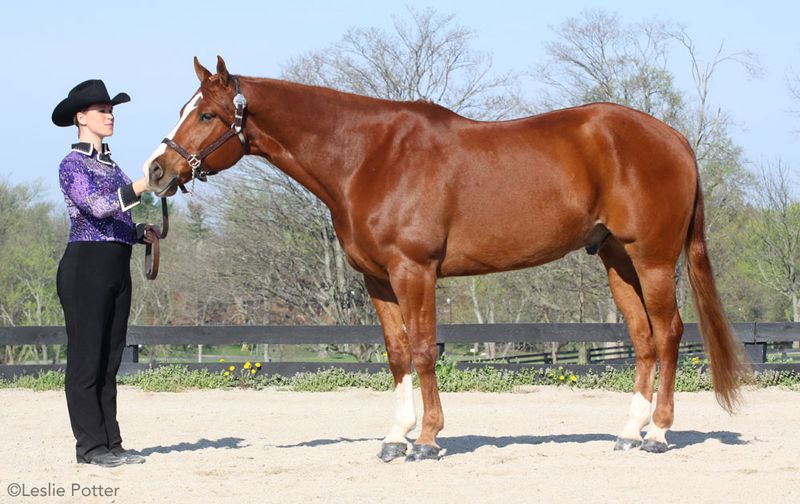
Known for their versatility and calm demeanor, American Quarter Horses are a favorite among trainers. These horses are not only quick learners but also eager to please, making them suitable for various disciplines. Their muscular build and solid frame add to their appeal, while their willingness to connect with humans sets them apart.
Unlike some breeds that require a firm hand, the American Quarter Horse responds well to gentle guidance. This adaptability makes them an excellent choice for beginners and experienced riders alike. Their history as ranch horses further underscores their reliability and work ethic.
Morgan Horse
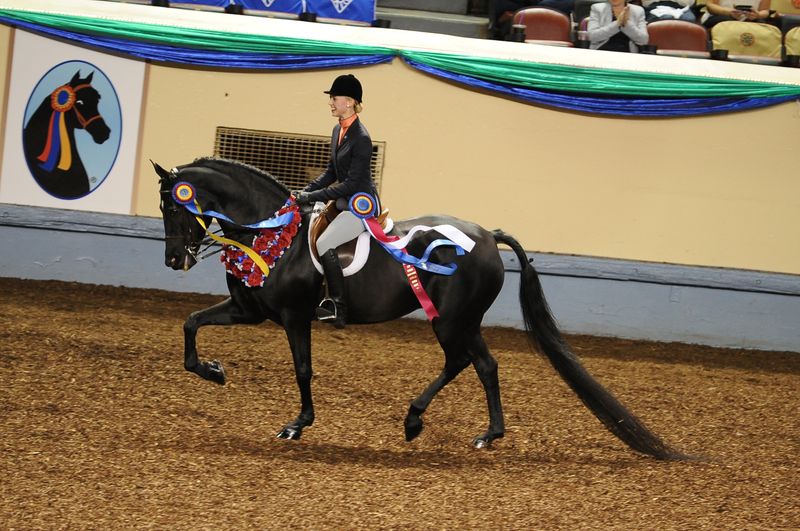
The Morgan Horse is celebrated for its intelligence and amiable nature. These horses thrive on human interaction, making training an enjoyable process for both horse and trainer. Their compact size and sturdy frame contribute to their versatility across different riding styles.
With a rich history in America, Morgans have been used in various roles, from cavalry mounts to family horses. Their spirited yet manageable nature makes them a top choice for those seeking a reliable partner. Their ability to adapt to different environments and tasks highlights their exceptional training capacity.
Appaloosa
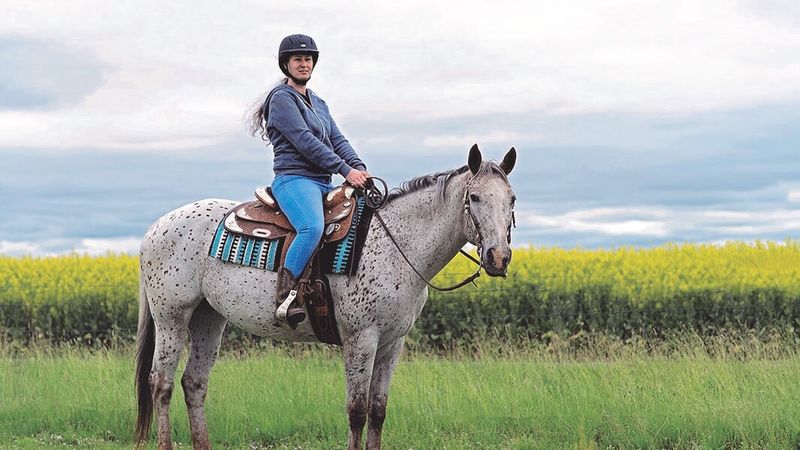
Appaloosas are renowned for their distinctive spotted coats and keen intelligence. Their desire to engage with people makes them relatively easy to train, providing a rewarding experience for trainers. The breed’s rich history with Native American tribes adds to their mystique.
These horses display a level of curiosity and alertness that makes them responsive to training cues. While their independent streak can occasionally pose challenges, their strong bond with humans often prevails. Their unique appearance and cooperative nature make Appaloosas a popular choice for various equestrian activities.
Tennessee Walking Horse
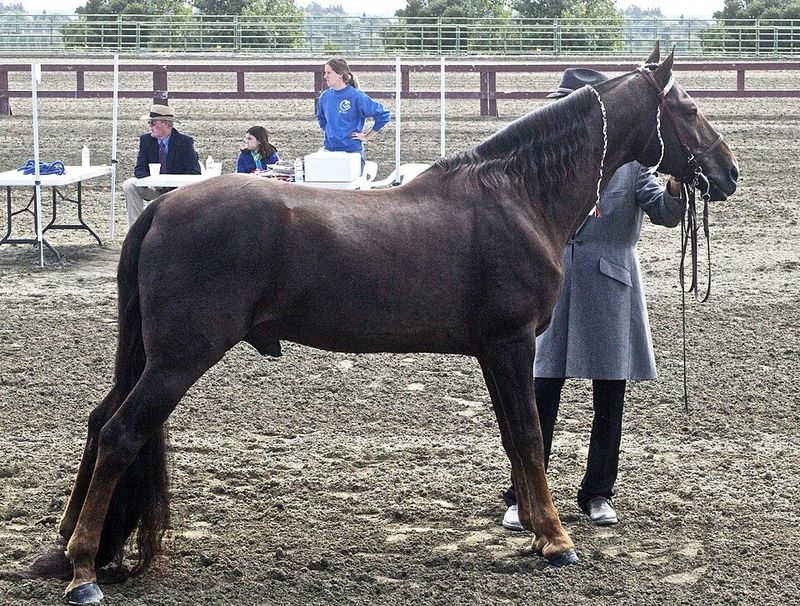
Famous for their smooth gaits, Tennessee Walking Horses are a delight to train. Their naturally calm disposition and willingness to learn allow them to excel in both pleasure riding and show disciplines. The breed’s unique gait, known as the “running walk,” adds to their allure.
These horses are known for their patience and friendly demeanor, making them ideal for novice riders. Although they require consistent training to maintain their gaits, their cooperative spirit makes the process enjoyable. Their graceful appearance and gentle nature make them a beloved choice in the equestrian community.
Welsh Pony
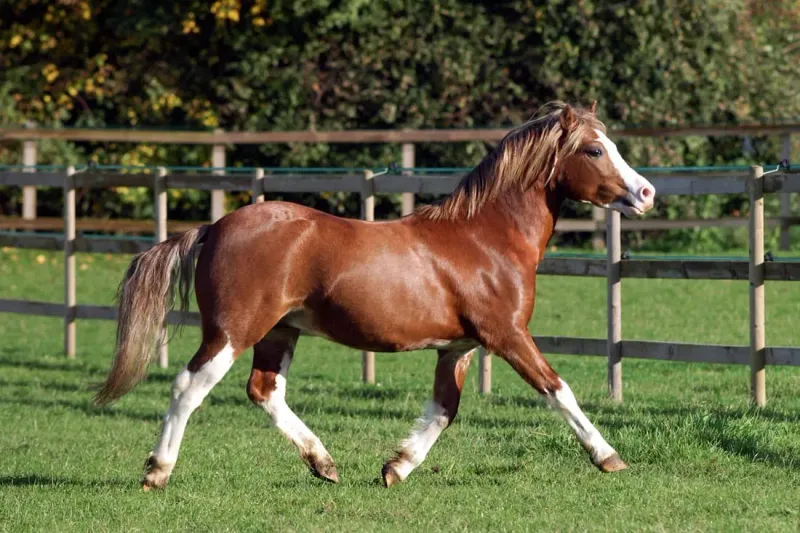
Despite their small size, Welsh Ponies boast big personalities. Known for their intelligence and spirited demeanor, they enjoy forming bonds with their handlers. Their playful nature often translates into a willingness to learn new things, making them ideal for younger or smaller riders.
These ponies possess a strong sense of curiosity, which can be channeled into productive training sessions. While they can sometimes be a bit cheeky, their keen intelligence allows them to pick up on cues quickly. Their adaptability and charm make them a favorite among pony enthusiasts worldwide.
Paint Horse
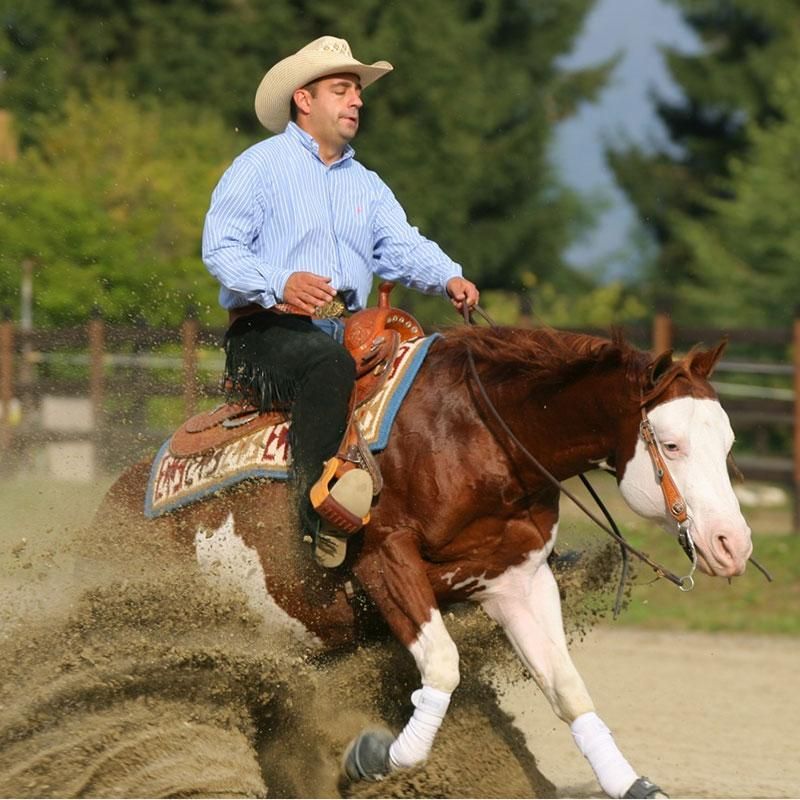
Paint Horses are known for their unique coat patterns and amiable nature. Their calm and cooperative demeanor makes them relatively easy to train, and they often excel in various equestrian disciplines. These horses are not only visually stunning but also possess a friendly disposition.
Their intelligence and willingness to please make them responsive to both novice and experienced trainers. Paint Horses often form strong bonds with their handlers, which enhances the training experience. Their versatility and distinct appearance have made them a popular choice for riders seeking a reliable and eye-catching partner.
Icelandic Horse
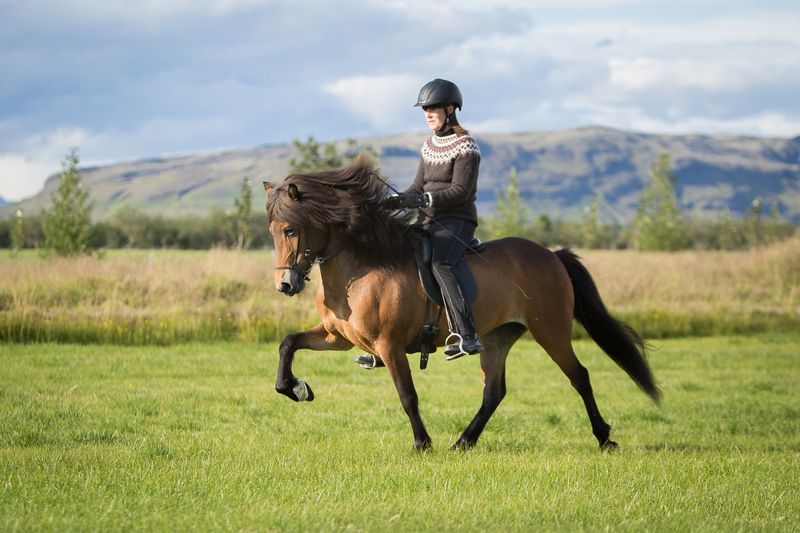
The Icelandic Horse, with its thick mane and compact build, is a symbol of resilience and adaptability. Known for their unique gaits, including the “tölt,” they provide a smooth and enjoyable ride. Their friendly and curious nature makes them a joy to train.
These horses are often praised for their strength and sure-footedness in challenging terrains, reflecting their origin in Iceland’s rugged landscapes. Their cooperative spirit and eagerness to engage with trainers make them suitable for various riding styles. Despite their small stature, Icelandic Horses are known for their big-hearted personalities.
Friesian Horse
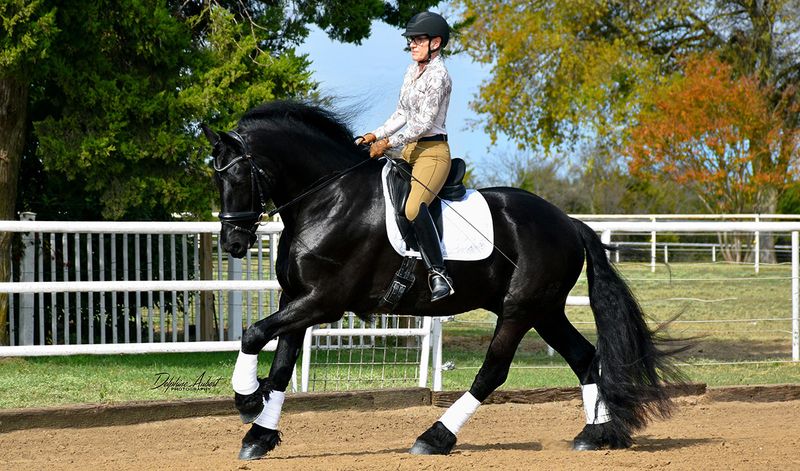
Friesian Horses are admired for their striking appearance and dignified presence. Their gentle, cooperative nature makes them relatively straightforward to train, especially in dressage and driving disciplines. With their long, flowing manes and tails, they are a sight to behold.
These horses are often described as having an “old soul,” attributed to their rich history in medieval times. Their strong build and graceful movement reflect their noble lineage. While they require regular training to maintain their skills, their willingness to engage and learn makes them a magnificent partner for horse enthusiasts.
Haflinger
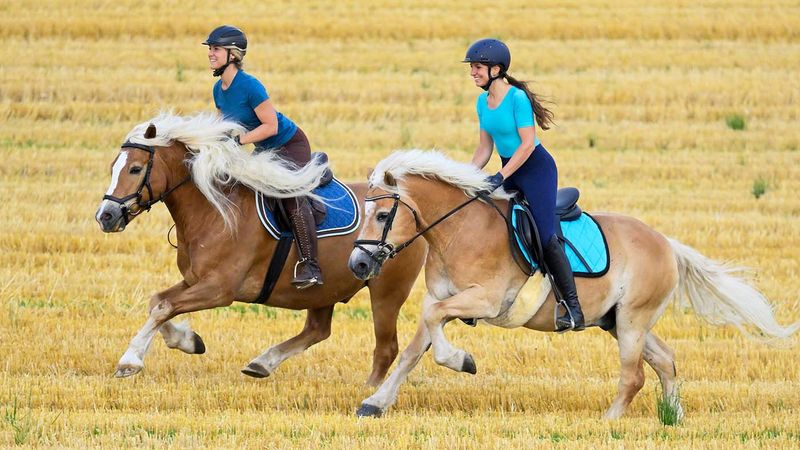
With their golden coats and sturdy frames, Haflingers exude charm and reliability. These horses are praised for their gentle temperament and willingness to work with trainers. Originating from the mountainous regions of Austria, they are sure-footed and dependable.
Haflingers are known for their versatility, thriving in various equestrian activities from driving to jumping. Their friendly disposition and eagerness to learn make them suitable for riders of all experience levels. The combination of strength and gentleness in Haflingers makes them an ideal choice for those seeking a trustworthy and engaging partner.
Connemara Pony
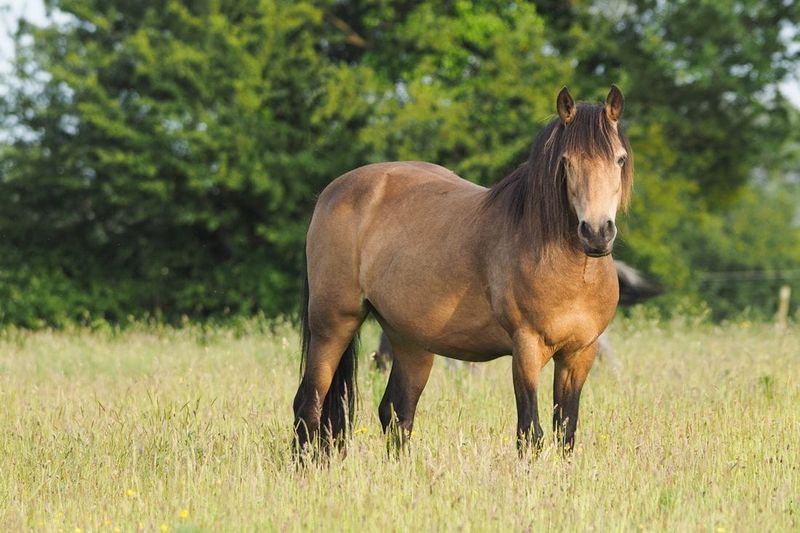
Connemara Ponies are known for their agility and intelligence, making them a joy to train. With origins in the rugged landscapes of Ireland, they are robust and adaptable, thriving in various equestrian disciplines. Their spirited yet manageable nature makes them ideal for both children and adults.
These ponies possess a natural jumping ability, often excelling in show jumping and eventing. Their keen intelligence allows them to quickly grasp new concepts, enhancing the training process. The combination of their strong, compact build and friendly demeanor makes Connemara Ponies highly sought after in the equestrian world.
Thoroughbred
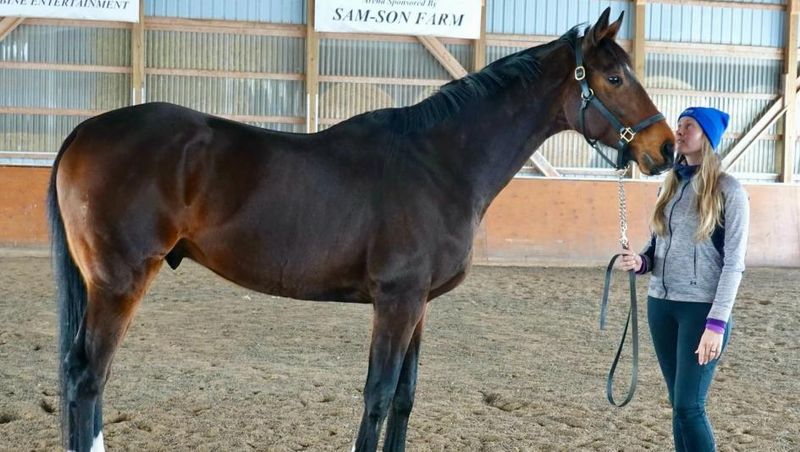
Thoroughbreds are synonymous with speed and agility, often dominating the racing scene. While they possess an athletic build and high energy levels, their spirited nature can make training a challenge. Patience and consistency are key when working with these horses.
Despite their reputation for being high-strung, Thoroughbreds can form deep connections with their handlers. Their competitive spirit and eagerness to excel make them rewarding partners for experienced trainers. Understanding their sensitive nature and providing a structured environment helps unlock their full potential, ensuring a successful training journey.
Arabian Horse
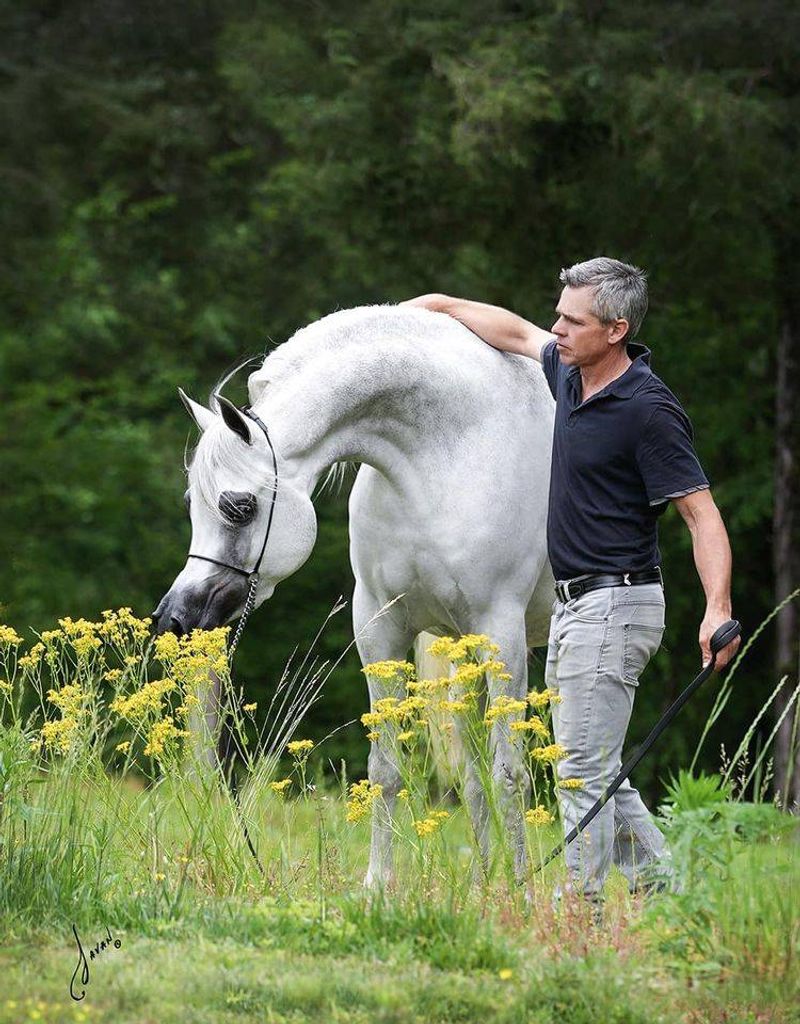
Arabian Horses are known for their endurance and grace, but their spirited personalities can test even seasoned trainers. Originating from the Middle East, they are one of the oldest and most versatile breeds. Their intelligence and alertness require patient handling.
While they can be challenging, building a strong relationship based on trust and respect is crucial. Arabians are often used in endurance riding, showcasing their stamina and resilience. Their unique appearance, with a distinct head shape and arched neck, adds to their allure. Training an Arabian can be rewarding, but it demands dedication and understanding.
Andalusian Horse
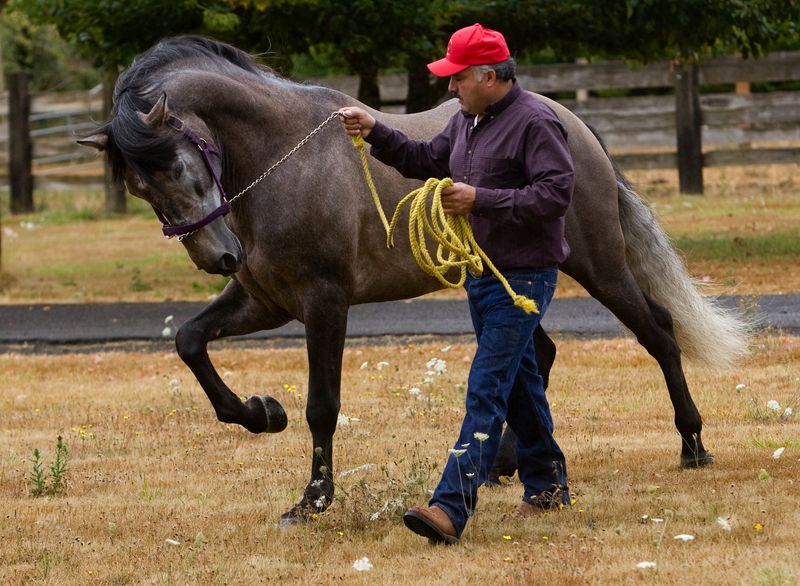
Andalusian Horses are renowned for their strength and elegance, often seen in classical dressage. While they possess a noble presence, their fiery temperament can challenge even experienced trainers. Their intelligence and sensitivity require a balanced approach.
These horses have a long history, celebrated for their roles in warfare and pageantry. Their versatility extends to various equestrian disciplines, but their spirited nature demands respect and patience. Building a trusting relationship is essential for successful training. With their striking appearance and powerful movement, Andalusians are a captivating but demanding breed to work with.
Akhal-Teke
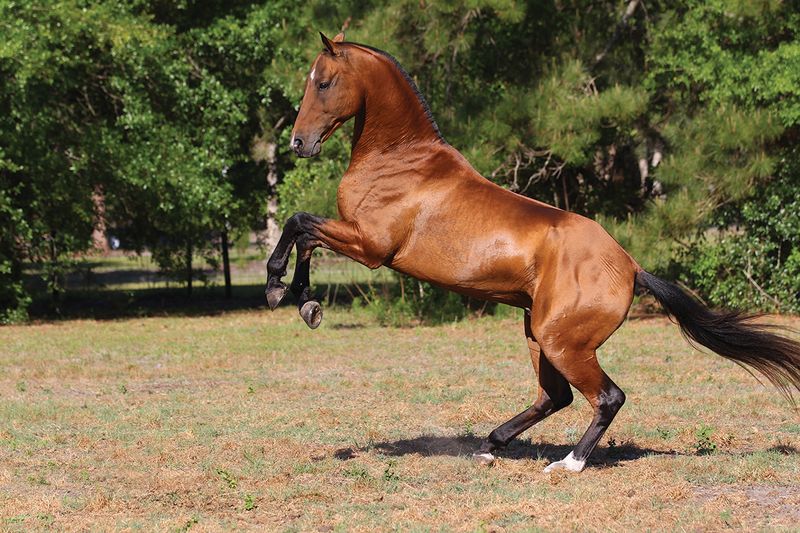
The Akhal-Teke, with its metallic sheen and slender frame, is a breed of unique beauty and challenging temperament. Known for their endurance, they have been used for long-distance travel across harsh terrains. Their independent nature often translates into a more demanding training experience.
These horses require a trainer who is patient and willing to invest time in understanding their needs. While they may not be the easiest to train, their loyalty and intelligence can lead to a rewarding partnership. The Akhal-Teke’s exotic appearance and rich history make them a fascinating, albeit testing, breed to train.
Mustang
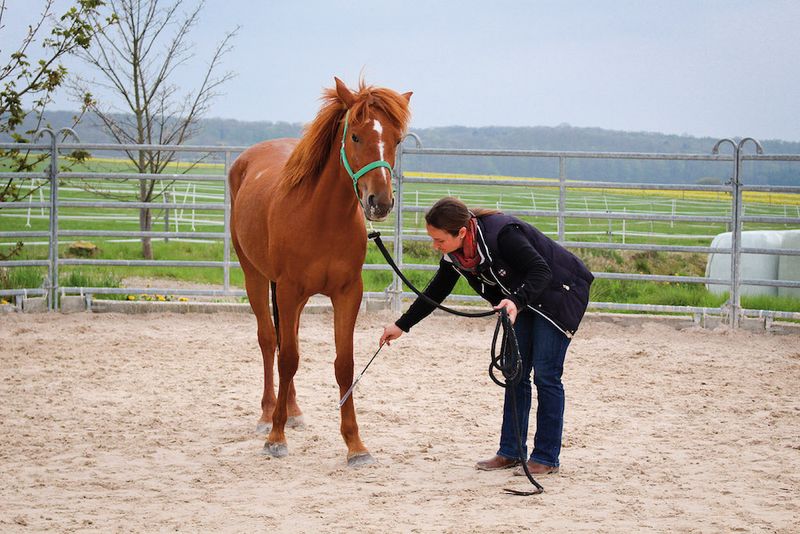
Mustangs are the embodiment of wild spirit and freedom. Descended from horses brought by Spanish explorers, they roam the American West. Training a Mustang is not for the faint-hearted, as their feral nature requires a combination of patience and respect.
These horses are incredibly resilient and intelligent, making them adaptable once trust is established. Their journey from wild to willing partner can be incredibly rewarding, but it demands a deep understanding of their innate behaviors. Mustangs represent a piece of American history, and taming one can be a profound and enriching experience.

